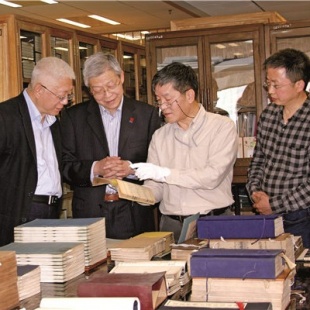Ancient books get a new chapter


Institute shares its knowledge with the world as it restores and conserves old literature using cross-disciplinary research and technology, Zhang Kun reports.
The first institute in China dedicated to the conservation and preservation of ancient Chinese books celebrated its 10th anniversary recently in Shanghai. Experts in this field of work look to more international collaborations and experiences to continue preserving these books.
Chief Librarian of Fudan University and Professor Chen Sihe proposed the institute's founding in 2014.
Through 10 years of development, the Institute for Preservation and Conservation of Chinese Ancient Books at the Shanghai-based Fudan University has conducted cross-disciplinary studies on traditional Chinese paper, ink and pigments, reviving the renowned Kaihua paper, a handmade material known for its unique peachy spots and endurance.
"We extended our studies to ancient palm leaf manuscripts, birch bark scrolls and microorganisms on ancient books," says Yang Yuliang, head of the institute who is the former president of Fudan University and an academician of the Chinese Academy of Sciences.
The 72-year-old is a leading scientist in polymer physics. "Before I began working in the field of ancient book protection, I thought it was not as much fun as cutting-edge technological projects like nanoscience," Yang says at the 10th-anniversary celebration for the institute on Nov 22. "But once I dived deep into it, I found infinite fun and enjoyment."
The conservation of artifacts on paper has been one of the biggest challenges because, similar to the crystallization of civilizations and collective memories of all human beings, they are important but extremely fragile and likely to disappear, Yang says.





































